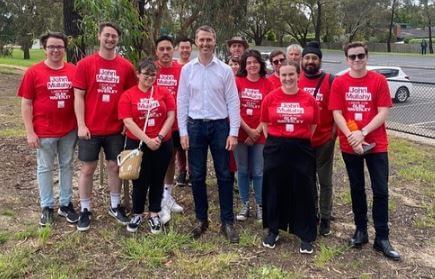The ALP released its review into the 2022 federal election last month. It is authored by former ALP minister Greg Combet and campaign director Lenda Oshalem.
The report’s main observation is that ALP support ran along an inner metro-to-rural continuum. The party won 31 of 45 inner metro seats, with the LNP winning just four and independents ten. In outer metro seats the ALP won 25 of 43, then 14 of 25 regional seats and just 7 of 38 rural seats.
Like the Liberal Party election review, the ALP found Scott Morrison’s unpopularity to be the central factor in the result, including the party’s treatment of women during his leadership. The ALP, however, clearly had a more fulsome appreciation than the LNP of public perceptions of Morrison’s failures: they highlighted his opposition to batteries and renewable energy, inaction on climate-fuelled disasters and the vaccine roll-out and, in the report’s words, the government’s “bellicose politicisation of the relationship with China.”
Underlined were Morrison’s “I don’t hold a hose” talkback radio line; and also, in response to the 2021 Women’s March, “Not far from here, such marches, even now, such marches are being met by bullets.”
The tone of the report is celebratory; the party strives to present the victory as won against the odds. However it also identifies important negatives for Labor in the result.
No.1 is the sliding Labor primary vote in “heartland” outer suburbs. “It is reasonable to expect that the Coalition will target Labor-held outer-suburban and regional electorates,” Combet and Oshalem write, “a strategy that Labor must anticipate and counter.” So we can expect plenty more cost-of-living campaigning in future.
More surprising is the recognition of the Greens as entrenched challengers for Labor seats. Labor recognises that it is in a stronger position when the Greens poll third on the primary vote rather than second. In these “three-cornered contests,” Labor plans to “actively contest the policy and political positions advocated by the Greens and dedicate resources for this purpose.”

The review of course recognised continued difficulties in QLD. It also noted the 6% slide in primary vote in Tasmania, due to the rise of the Jacquie Lambie Network.
As party president, Wayne Swan pointed out in his introduction to the review, “The 2022 victory represents an opportunity to establish a long-term progressive Labor government…our ambition to improve the lives of Australians is not limited by one election.”
Yet the most difficult and most important factor for the next election campaign is simple: govern well. The party recognises that if the federal government meets its election promises, maintains unity and delivers cost-of-living relief and improved public services in under-resourced areas like childcare and aged care, the next campaign will take care of itself.
Follow Christian on Twitter for more news updates.
Sign Up To Our Free Newsletter